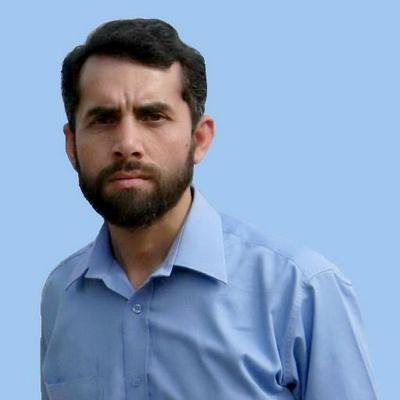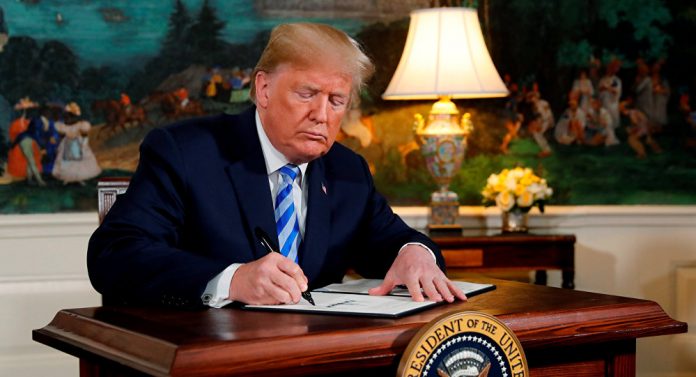The Iran nuclear deal – or Joint Comprehensive Plan of Action (JCPOA) – finalized in 2015 after almost 15 years of intense diplomacy, between P-5+1 and Iran, was considered as one of the greatest diplomatic marvels of the Obama administration. The JCPOA – a multi-lateral agreement with the UN backing –had ensured, through an intrusive verification regime of IAEA, that Iran’s nuclear activities must remain transparent and accessible. So far the IAEA had observed full Iranian compliance with the JCPOA without noting any clandestine nuclear activity in breach of the agreement. However, this compliance didn’t prove enough for the US President Donald Trump, who unilaterally withdrew from the JCPOA, despite opposition from the EU, China, Russia and the UN.
Trump’s withdrawal from the deal defies the norm of upholding the international treaties and agreements. This unilateral US action has set a wrong precedent for the international community regarding their obligations towards international treaties and conventions, especially at a time when the de-nuclearization of the Korean peninsula is being discussed by the international community. The US scrapping of the JCPOA thus carries a risk of undermining the existing global non-proliferation regime.
The US withdrawal from the JCPOA happened weeks before the Trump-Kim summit in Singapore. Even after the bilateral summit, it is not clear how the denuclearization process of the Korean peninsula would proceed. Although, US Secretary of State Mike Pompeo has announced 2020 as the prospective timeframe by which the process of North Korean nuclear disarmament would be completed, it remains unclear how the complete process of denuclearization would be implemented in future. The North Korean demand in return for the denuclearization also remain shrouded in mystery, because so far Kim has not demanded much from the US, except for security guarantees and putting an end to the US military exercises with South Korea. But in future, the question of US military bases and nuclear weapons deployment in Asia Pacific and the US nuclear umbrella over Japan and South Korea may become contentious issues during the denuclearization process of Korean peninsula.
The US betrayal of the JCPOA could have shaken Pyongyang’s confidence in US assurances for surrendering the North Korean nuclear weapons. The US exit from the JCPOA has raised some serious questions on the reliability of US diplomatic commitments. More so, the unpredictable nature of President Trump coupled with the apprehensions that future US governments may retreat on the promises and pledges made to North Korean regime, pose formidablechallenges to the goal of nuclear disarmament on the Korean peninsula. Such suspicions would also discourage other states to take US diplomatic assurances seriously in future negotiations related to non-proliferation initiatives. Consequently, treaties being debated at the Conference of Disarmament (CD) or awaits to be entered into force, like FMCT, CTBT, NWFZ, PAROSetc.,could face an uncertain future.
The US has offered Iran to re-negotiate a comprehensive deal which must address the questions of Iran’s ballistic missile programme and Iranian intervention in regional states. Iran has rejected the US offer, categorically stating that it doesn’t trust President Trump and no talks will be held as long as he is in the office. The US has warned that any state or firm which engages in business with Iran will also be subjected to US sanctions. For the time being Europeans, Russians and Chinese have also shown their frustration over the US decision to abandon JCPOA, and have vowed to keep the deal intact. This although looks less likely, because the Europeans firms will not be willing to risk their trade with Washington for the sake of Tehran. Consequently, Iran is likely to increase its reliance on the Chinese and Russian support after the US sanctions and the closure of European businesses. The European void may subsequently be filled by the Chinese and Russian companies after the Europeans’ departure to discourage Iran from quitting the deal.
Nevertheless, it is conceivable that Iran may exit the deal in future, citing the European trade violations as a pretext and adopts a more confrontational approach towards the West. Iran could thus exercise the option of either abandoning the nuclear Non-Proliferation Treaty (NPT) or resuming uranium enrichment and re-processing activities while complying with the NPT. But in either case the apprehensions regarding Iranian clandestine nuclear activities would grow. Iranian leadership is already weighing the possibility of first, resuming uranium enrichment at an industrial scale and second, to keep open the option of quitting the NPT which although appears to be a distant possibility at the moment. Both the options, nevertheless, heighten the prospects of military action against Iranian nuclear programme by the US and/or Israel. Another war in the Middle East would be a disaster of epic proportion for the region and especially for Europe, which is already grappling with ways to manage the worsening refugee crisis.
Saudi Arabia is already weighing the option of initiating a nuclear programme, presumably to develop nuclear weapons, in case Iran resumes its nuclear and uranium enrichment activities. These aspirations are not expected to remain limited to Iran alone as other states within the region and beyond, like Egypt, Turkey, UAE etc., may also aspire for nuclear weapons. Moreover, if Kim Jong Un decides to halt the denuclearization process, anticipating the US reversal on given assurances – like the JCPOA – other states, notably South Korea and Japan may also start evaluating the nuclear option. The US Nuclear Posture Review (NPR) made public in February 2018, risks accelerating the global nuclear arms competition. China and Russia have already reacted unfavourably to the NPR, by increasing their defence spending and labelling the NPR as manifestation of the US cold war paranoia.
In the next few months the Iranian nuclear policy would become clear, which is expected to profoundly influence the future of the global nuclear order. The US exit from the JCPOA has set a wrong precedent for the international non-proliferation regime by undermining the significance of international treaties and conventions. Several other states, especially situated in troubled regions, may feel encouraged to develop nuclear deterrent of their own.

Shams-uz-Zaman, M.Phil, (Strategic and Nuclear Studies), National Defence University, Islamabad. Ex-Visiting Faculty Member, Roots International University College, Islamabad (Affiliated with The University of London). Co-author of the book: “Iran and the Bomb: Nuclear Club Busted”


